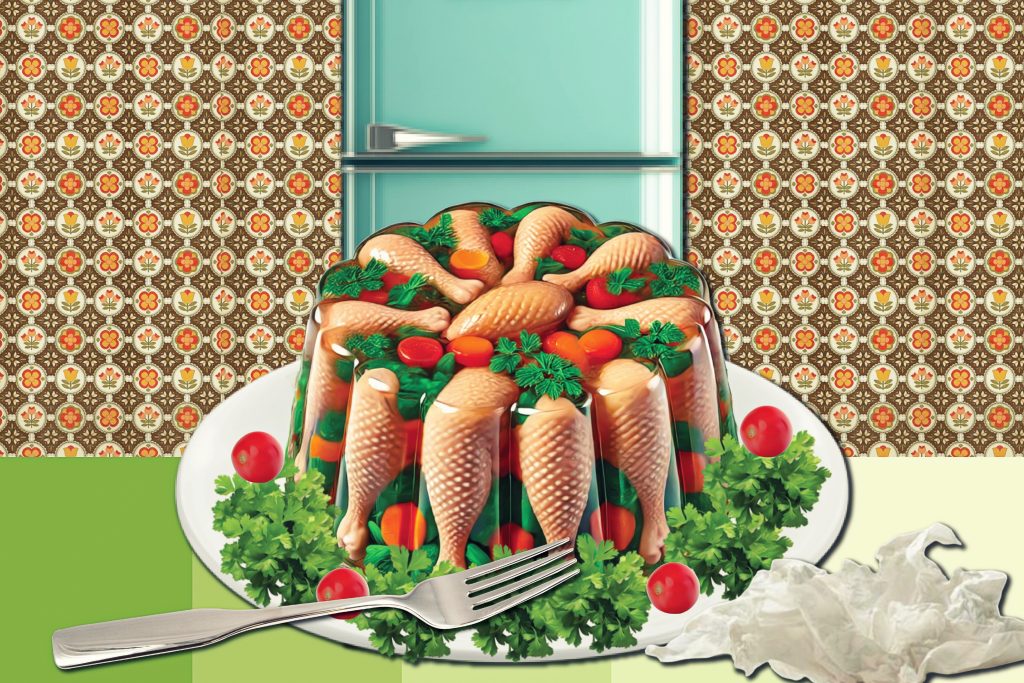On popular video platforms like YouTube and TikTok, you can’t scroll far without stumbling upon videos from Americans who have taken the leap across the pond to pursue their dreams in Europe.
But is the grass truly greener on the other side?
For many of these expats, it seems that it is indeed, with quality of life often cited as the top reason for their transatlantic move. When it comes to lifestyle, Europe undeniably holds some advantages. Its cities are more walkable, the cuisine tends to be healthier, healthcare is more accessible, and they’ve practically perfected the art of work-life balance. It’s a stark contrast to the American hustle, where many juggle multiple jobs just to make ends meet. And don’t get me started on vacation days—American employers could learn a thing or two from their European counterparts.
It’s honestly no surprise that droves of Americans are setting their sights on popular European destinations like Italy, Portugal, Spain, Greece, and France to break free from the corporate grind back home. But just how many are taking the plunge? Since around 2016, there’s been a notable surge in American interest in emigrating to Europe. In 2022 alone, a staggering 75,000 people made the move, marking a 28% increase compared to previous years.
Of course, let’s touch on the elusive “European lifestyle” that has expats waxing lyrical. And why wouldn’t they? It’s like stumbling into a real-life vogue magazine, with every alleyway promising a new culinary adventure minus the guilt trips served with a side of supersize back home.
Imagine this: streets peppered with quaint cafés rather than fast food joints, where lunches stretch for hours and are treated like a sacred ritual. It’s not just about eating smaller portions or the absence of preservatives—it’s the entire approach to life. Europeans have this enviable way of embracing a slower pace, savoring each bite and each sip as if they’re decoding the notes in a fine Bordeaux.
So, when Americans trade in their car keys for a pair of walking shoes and integrate into this almost cinematic setting, the results are hardly surprising. Weight loss becomes an unintended side effect of a lifestyle that celebrates movement and moderation over mindless munching. Living in Europe doesn’t just change their waistline—it changes their mindset. They’re not just shedding pounds; they’re shedding the American hurry, discovering that maybe, just maybe, the good life isn’t about how fast you can get through it but how fully you can enjoy it. Tres chic, no?
@royaventurera How I lost weight when I moved to France #americaninfrance #france #weightloss #frenchculture #frenchfood #heathyfood #livingabroad
♬ original sound – Roya
@kayshaynee these small changes make such a big difference🤌🏻 #americanabroad #americanineurope #europeanlifestyle #americavseurope #mediterraneandiet #mediterraneanfood #fyp
♬ original sound – Kayleigh
@michellebaldwinn it always makes sense why i lose weight when i come to europe😂 #fyp #culturaldifferences #americanlivingineurope #europevsusa #italy #momlife #differences #americans #lifestyle #europeanlifestyle
♬ original sound – Michelle Baldwin
It’s almost like a delicious paradox, isn’t it? Picture yourself nibbling on a croissant in Paris or savoring a slice of authentic Neapolitan pizza. It’s not just food; it’s an art form, a cultural immersion that somehow, magically, doesn’t stick to your hips as much as one might fear.
Dave Asprey hits the nail on the head. It’s not merely about indulging in what you eat; it’s about understanding what you’re eating. In the States, we’re bombarded with processed foods packed with additives that could very well be villainous little culprits behind inflammation and a host of other indignities in our bodies.
Meanwhile, in Europe, it seems they’ve clung to the golden thread of tradition—food made with ingredients that don’t read like a science experiment. There’s something undeniably alluring about consuming products that are as close to their natural state as possible. It’s not just better for the waistline but for overall well-being. So, oui, dropping pounds while eating outrageously well in Europe isn’t a fantasy; it’s the delightful reality of a lifestyle that cherishes quality over quantity, freshness over fast, and well-being over convenience. It’s not too good to be true, darling—it’s just a different, perhaps more enlightened, way to live and dine.
@daveaspreyofficial This is why Americans feel better when they eat food in Europe. 👆🏼 #DaveAsprey #biohacking #biohacker #health #diet #healthydiet #americandiet #wellness #wellbeing
♬ original sound – Dave Asprey
@aurora._victoria Please tell me there are other expats that have also made this mistake 😫 #americanintheuk #lifeinlondon #expat #international #livingabroad #groceryshopping #preserves #foodpreservation #americanfood
♬ original sound – Rora 🌸
@ashseestheworld this is just the tip of the iceberg when it comes to food quality in the UK vs the US #eatcleanfood #foodqualitymatters #expatabroad #solotravelgirl
♬ original sound – Ash Loren
@rob1nsky This seems a little intentional 🫢🤔 #foods #ingredients 📸 Source: foodbabe.com EU food disclosure rules: http://tinyurl.com/EUrulesnregs
♬ original sound – rob1nsky
The stark contrast between continents is sometimes comedic, isn’t it? Europe, with its charmingly narrow streets and ancient walkways, practically invites one to stroll or hop on a tram. Meanwhile, in America, attempting to walk anywhere beyond your mailbox can sometimes feel like a Herculean task.
This video below encapsulates this perfectly—with a pinch of satire, of course. It highlights not just a preference but a necessity for cars in many U.S. cities, where urban sprawl makes even the simplest errand without a vehicle a daunting challenge.
@dolifewithclara Replying to @𝙷𝚎𝚛𝚎 𝚋𝚎 𝚍𝚛𝚊𝚐𝚘𝚗𝚜 Love a good adventure though💖💖 #europeaninusa #europevsusa #movingtotheus #europeanlivingintheus #scandistyle #foryoupage #flyttatillusa
♬ My Little Friends – Yona Yulisia
Moving on to healthcare—now there’s a topic that can swiftly wipe the smile off any American’s face and replace it with a look of sheer panic! Stateside, the mere mention of a trip to the ER can conjure visions of financial ruin as easily as the actual ailment itself. But hop over the pond, and the narrative takes a dramatically healthier turn.
In Europe, the healthcare scene is less of a horror story and more of a comforting tale. Many European countries boast healthcare systems that are not only comprehensive but also predominantly funded through taxation. This means that access to healthcare doesn’t hinge on one’s personal fortune but on a more egalitarian principle: healthcare as a right, not a privilege.
So, if you find yourself unwell while living or traveling in Europe, the fear of a gargantuan bill is notably absent. It’s a revolutionary concept for many Americans—a system where the focus is on getting better rather than getting billed. Hospital visits, surgeries, and even long-term treatments come without the crippling financial anxiety that is all too familiar in the U.S.
This profound difference often leads to not just better financial health for individuals but also improved physical health, as people don’t delay seeking help for financial reasons. It’s a part of the European lifestyle that might just be as beneficial as their diet and pedestrian-friendly cities. Who knew peace of mind could be a side effect of healthcare?
@chiara_in_italy Although healthcare in Italy has some problems, I’ve always had a great experience here with doctors (and it’s cheap!) 🇮🇹❤️ #italy #sanità #lifeinitaly #healthcare #italianamerican #americansinitaly #movetoitaly #studyinitaly #americansabroad #sanitàitaliana #europe #universalhealthcare
♬ original sound – Chiara In Italy 🇮🇹
Indeed, the leap across the pond is about much more than swapping hamburgers for croissants or changing how one accesses medical care—it’s about stepping into a completely new social fabric. This can be as exhilarating as it is daunting. The thought of navigating new cultural norms, perhaps grappling with a new language, and finding one’s place in a foreign society could send anyone’s heart racing.
However, as many American expats will attest, what starts as a nerve-wracking adventure often transforms into a profoundly enriching experience. It’s not merely about being accepted; it’s about growing, adapting, and often, flourishing in new ways. These experiences tend to forge resilience and a broadened perspective that might have been unimaginable before the move.
The very act of integrating into a new society can serve as a crucible for personal growth. Expats often find that the initial hurdles—like mastering the local language or understanding social etiquettes—are stepping stones to deeper connections and a more nuanced understanding of the world.
And let’s not underestimate the value of that famed American fortitude—often seen as a blend of optimism and tenacity. It’s a trait that can help turn the expatriate experience from a trial into a triumph. So while the move is indeed a major adjustment, it is also an opportunity to demonstrate and develop one’s strength in ways that staying within the comfort of home never could.
@iamrachelsarah PSA: Life is better outside of the US. #fyp #leavingamerica #livingabroad #travel #traveltok #traveltiktok #livedontjustexist
♬ original sound – Rachel Sarah
@iamsoldana Considering joining the european expat community?? #americaninparis #americanineurope #expatlife #qualityoflife #paris #nyctoparis
♬ original sound – Soldana
@kayshaynee move abroad it will solve all of your problems🤪 (jk) #americanabroad #americanineurope #europevsamerica #expatlife #traveltiktok #movingabroad #movingabroadalone
♬ original sound – Kayleigh
The allure of the Old World—with its storied streets and ancient echoes—has a charm that’s hard to resist. For anyone bitten by the wanderlust bug or seeking a respite from the American hustle, the prospect of European living offers a seductive mix of history, culture, and a more leisurely pace of life.
The experiences of Americans who’ve embraced this life shift do more than just resonate; they inspire. They serve as vivid reminders that there are alternative ways to structure our lives and societies—ways that might prioritize well-being over wealth, leisure over labor, and community over individual gain. It’s not that Europe is without its faults—nowhere is—but rather that its different challenges and benefits provide a refreshing contrast to those in the States.
Their stories are like siren calls, beckoning us to at least consider the roads less traveled by. Whether one ultimately decides to pack up and move or simply incorporates elements of the European lifestyle from afar, these narratives encourage a broader perspective. They invite us to question, to explore, and perhaps to dream of what might be possible if we step outside our own borders and comfort zones.
So yes, it does make one pause and muse on the possibilities—like a tantalizing dish best savored slowly, each bite rich with new flavors and perspectives. Indeed, it’s sumptuous food for thought.
Till next time, be wickedly wonderful…







As long as all the fascist ANTI-DEMOCRATIC PARTY leftist filth leave the USA, I’m good with it.
Just leave, lefty, don’t let free speech and the 2nd Amendment hit you in the a55 on your way out.
Ok, if it is so ‘wonderful’ over there, anyone and everyone who is not happy living in America, please GO now! If we can rid of those who think America and our freedoms, etc. is not the place to live, maybe if they all leave, we CAN be happy again.
You don’t get much of a tan line wearing a burka, and deal with the extra attention if you don’t.
I don’t see any mention of the growing lawlessness that seems to have police and political support. Rapes, murders, breakins and all the rest. Europe was once like this. So was the USA. Now fantasy trumps reality like I find in this article. Integration is frown on here and all the Muslims and others don’t do that here or there.
It’s true, Europe is a great place to live. Lots of vacation time, medical care is less expensive, the food is fresher and tastes great. But being Americans, the hardest working people in the world, who do you think is paying for that great European life style? We are! We’re paying for their defense bill so they can live more leisurely. On the other hand, they did have horrendous two world wars in the last century. Take your pick, would you pay the bill in blood or treasure? The time I spent there, maybe 2 mos total? I saw very very few fat people, I was thinking those had to be Americans.
Go to Europe. Don’t waste our time
Absolutely positively NO WAY I would leave the USA and move to Europe. Even though I was told I am eligible for dual citizenship in Ireland, and I could get elder care. It certainly is tempting to spend my last days admiring beautiful Irish women.
How are the taxes?
The food and walking may be better in Europe, but healthcare definitely is not. You may not have the same issue of cost there, but you don’t run into rationing here in the US like you do there. I know many people who have been on waiting lists for urgent lifesaving surgeries where they could die without it but are not an emergency so they get pushed off weeks to months because of priority surgeries from someone in a car accident, for example.
Addition by subtraction. They are correct about food.
Have to agree. I’ve been in Kyiv for 17 years
Stay there
I’m very glad to see them leave the US. Please do us a favor, stay gone.
Absolutely!!!
Lawyers are LESS out-of-control in Europe. LAWYERS contribute NOTHING but misery to the US GNP. So people emigrate as one solution
Good riddance. Love it or leave it now
Grew up in germany, you can keep it, thanks. America ain’t so bad.
Lived in Europe for nine yrs. This article is overly simplistic and romanticized. The devil is in the details. Some of the countries mentioned in this article severely limited liberties during COVID. (Something To Consider) I’m not saying Europe bad, just saying this article is.
First world mentality, for sure. What a fantasy notion the average person could never afford
Silly people. Europe is like that because we pay for their military protection. Once that’s gone YOU will pay for everything just like back in America except you can’t defend your self.